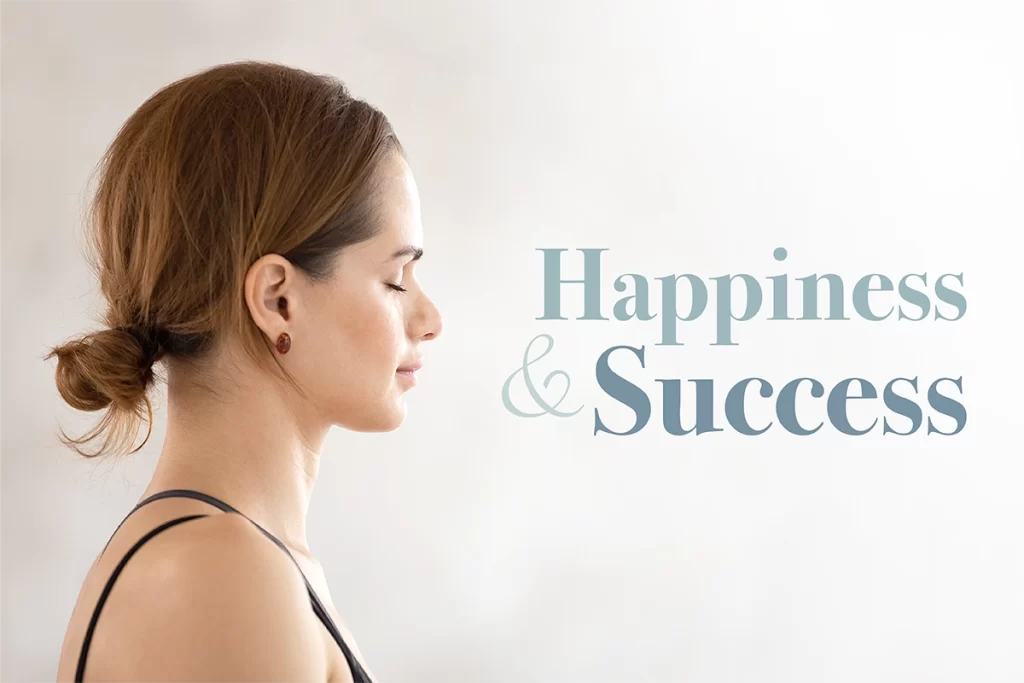People want to have both happiness and success. It is difficult to achieve even one of these things, but can both really be achieved? Even choosing just one of the two would be a difficult choice to make. Then of success and happiness, which is important? Modern people seem to race through life without even thinking about this. Ambitious people think “success brings happiness”. However, it is difficult to succeed and furthermore, not all people who seems to have succeed on the surface live in happiness and comfort. Is it impossible to have both success and happiness all at once? What if one understands the principles of success and happiness and eliminates the obstacles that block them?
Successful People Have High Intrapersonal Intelligence
Howard Gardner, Professor of Cognition and Education at Harvard University developed the ‘theory of multiple intelligences’, which differentiates human intelligence into 8 innate abilities: musical-rhythmic, visual-spatial, verbal-linguistic, logical-mathematical, bodily-kinesthetic, interpersonal, intrapersonal, and naturalistic. People have varying levels of ability in different fields, but those who have succeeded in their respective fields all have high intrapersonal intelligence. Intrapersonal intelligence includes response to environment, relationships with others, understanding oneself, etc.
In 2015, I opened an online course called Engineering Self-Reflection for Human Completion on a worldwide online lecture service called Coursera. The students of this course completed a questionnaire that measured their intrapersonal intelligence with 20 statements regarding self exploration, self understanding, exploring others, understanding others, etc.
Before taking the course, the students’ average intrapersonal intelligence was 65 points, which increased to 87 points after the course. One must know his- or herself in order to succeed, but if one cannot objectively evaluate himself and falls under illusions, he will end up with more delusions that will eventually block his success. When you reflect on your past self and subtract the pictures of your mind that are related to those times through meditation, you will be able to understand yourself objectively, focus on your work, and take action.
Meditation Raises Levels of Happiness
There are times that, even though it seems like you are not doing anything, inside your head is chock full of all kinds of mind clutter and thoughts. Though the body is resting, the mind is not. Sadly, studies have shown that people who tend to think more experience less happiness. That is, worries and concerns are what block happiness.
Then can one become happy by eliminating worries and concerns? Happiness levels were measured in 160 college students who participated in the Ma-Eum Su-Ryun University Camp, hosted by Ma-Eum Su-Ryun University Clubs in 2012 (Mi-Han Kim, Academic Society for Human Completion, 2013 Journal of Academic Society for Human Completion, Vol.5) using a scale developed by English psychologists Rothwell and Cohen, in order to gauge subjective levels of happiness experienced by each individual. Results showed increased levels of happiness from 56 points before the meditation camp to 64 points after.
In addition to these results, a study done on participants of Teacher’s Meditation Course hosted by Academic Society for Human Completion at the Ma-Eum Su-Ryun Main Center in Non-san, South Korea also showed that meditation affects the brain in a positive way. 108 participants were studied before and after practicing self-reflection and cleansing meditation for one week. Of those, brain waves from 32 participants were measured and showed that overall brain performance (BQ index) and ability to overcome physical and mental stress (anti-stress index in right brain) had increased. This is evidence that when worries and mind clutter disappear, feelings of happiness increase and brain performance is enhanced.
The reason why one becomes happier as they meditate is simple. It is because by emptying the mind and throwing away distracting thoughts, useless anxiety, worries, comparisons, inferiorities, and other negative thoughts have disappeared. As a result, you can see yourself objectively and achieve success, so you kill two birds with one stone.
Duck-Joo Lee
After receiving his Ph.D from Stanford University, he worked at NASA, and now works as a professor in Aerospace Engineering at KAIST. He is the current Vice Chairman of the American Helicopter Society, Vice Chairman of the Korea Drone Industry Promotion Association, and President of the first Asia-Australia Rotorcraft Forum. He has offered character education courses at KAIST, such as “Now is the Turning Point in My Life” and “Pursuit and Recovery of Human Nature”. Starting last year, he has also been serving as the President of the Academic Society for Human Completion and a founding member of the Future Education Society.
djlee@kaist.edu
Source: http://dl.dongascience.com/magazine/view/S201708N043
